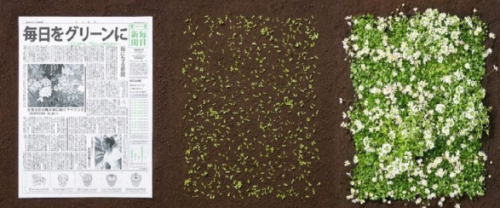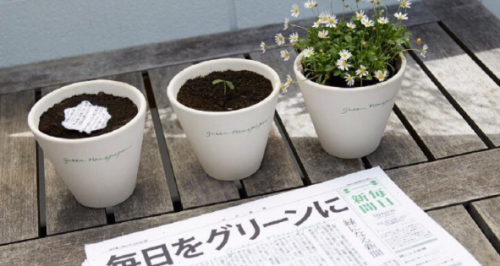Japanese Music Vocabulary ・音楽についての単語
Japanese Music Vocabulary ・音楽についての単語
I re-watched my favorite anime, Nodame Cantabile. The feels and obsession are real, like the heaps of music-themed vocabulary I learned from it! Here you are! EVERYONE, WATCH NODAME CANTABILE, I AM SERIOUS! (のだめカンタービレ)
「楽しい音楽の時間だ」
The nice thing about music vocabulary is that there are some Kanji that keep appearing again and again, making the words easier to remember (the readings)
General Stuff
音楽・おんがく・music
弾く・ひく・to play (an instrument)
楽器・がっき・Instrument
楽譜・がくふ・sheet music
クラシック・classical music
演奏・えんそう・performance
演奏旅行・えんそうりょこう・tour
手中・しゅちゅう・concentration
奏法・そうほう・way of performing, playing
公演・こうえん・performance
Some instruments
ピアノ・piano
バイオリン・violin
オボエ・oboe
ティンパニ・tinpani
ファゴット・fagott
トランペット・trumpet
フルート・flute
ギター・guitar
チェロ・cello
コントラバス・contrabass
ビオラ・viola
ピッコロ・piccolo
ドラム・drum
マンドリン・mandolin
Compositions
作曲・さっきょく・composition (also a する verb)
楽曲・がっきょく・composition
器楽曲・きがくきょく・instrumental piece
練習曲・れんしゅうきょく・étude
交響曲・こうきょうきょく・symphony
協奏曲・きょうそうきょく・concerto (eg. ピアノ協奏曲 piano concerto)
狂奏曲・きょうそうきょく(yes, the same as in concerto)・rhapsody
曲名・きょくめい・title
Artists and Ensembles
音楽家・おんがくか・musician
奏者・そうしゃ・player, musician
指揮者・しきしゃ・conductor
デュエット・duet
室内楽・しつないがく・chamber music
オーケストラ・orchestra
Music Theory
音楽理論・おんがくりろん・music theory
器楽・きがく・instrumental
長調・ちょうちょう・major key
短調・たんちょう・minor key
和音・わおん・accord
協和音・きょうわおん・consonant accord
不協和音・ふきょうわおん・dissonant accord
小節・こぶし・measure
音符・おんぷ・note
休符・きゅうふ・rest, pause (playing)
絶対音感・ぜったいおんかん・perfect pitch
楽想・がくそう・theme
作品・さくひん・opus number (e.g. 作品18 - op. 18)
楽章・がくしょう・movement (e.g. 第1楽章 - first movement)
More Posts from Earthquakedeer and Others

“Long way Back”
玉に瑕
玉に瑕 (たまにきず) - a flaw, something that spoils something otherwise pleasant. Literally “a scratch on a jewel”.

101417 - my whap reading notes; (09100 dop)
english: one million
japanese: :)
english: oh boy
japanese: one hundred ten thousands
tumblr-vocab in Japanese

A brief overview of useful words to know, in case you switch the language of your tumblr to Japanese!
Posts (投稿数「とうこうすう」)
Text post - テキスト
Photo - 画像(がぞう)
Quote - 引用(いんよう)
Link - リンク
Chat - チャット
Audio - 音声(おんせい)
Video - 動画(どうが)
Notes - リアクション
Reply - 返信(へんしん)
Reblog - リブログ
Like - スキ
Tags - タグ
Source - 出典(しゅってん)
Blog (ブログ)
Account - アカウント
Username - ユーザー名(な)
Main blog - メインブログ
Sideblog - サブブログ
Draft - 下書き(したがき)
Queue - 予約投稿(よやくとうこう)
Schedule - スケジュール
Blog theme - サイトのテーマ
Settings - 設定(せってい)
Activity - アクティビティ
Past 24 hours - 過去24時間(かこ24じかん)
Biggest fans - 熱烈ファン(ねつれつ)
Most popular post - 人気投稿(にんきとうこう)
Interaction (相互作用「そうごさよう」)
Ask box - 受信ボックス(じゅしん)
Anonymous ask - 匿名での質問(とくめいでのしつもん)
Tumblr IM - メッセージ
To follow - フォローする
Follower - ファン
X began following Y - XがYのフォローを開始しました(かいし)
Search tumblr - tumblrを検索(けんさく)
Blocked blogs - ブロック済み(ずみ)ブログ
Submission - ゲスト投稿
X submitted a post - Xからのゲスト投稿
X mentioned Y - XはYについて投稿で言及しました(げんきゅう)
Language Pen Pal project
Hi everyone!
My name is Tas, and I’m from Sydney, Australia. Recently, I was thinking to myself “how cool would a Pen Pal Project be, but with language exchange?” So I decided to launch The Bi-lingual Mingle Project! Basically you just put in your target language (or languages) and your language of fluency- to find someone who has allignent language goals. ie. I am currently studying Spanish but fluent in English so my Pen Pal would be studying English and fluent in Spanish! I have attached the link to the project below and would love to create a space where an international audience can interact!! Please fill the doc. for your new Language Pen Pal!
https://docs.google.com/spreadsheets/d/1K2k5vPPjOEoYELdWWGTP4az9G2TlxOA0SctdsBFls8w/edit?usp=sharing
🌻😊

JLPT | 日本語能力試験 Hey guys, throughout my time running this studyblr I’ve received a lot of questions regarding the JLPT exam. Personally, I myself have never taken the exam nor am I planning on doing so in the near future, however I have asked my closest friends around me who have taken the exam in the past, or who are currently studying for it, for advice regarding how to prepare for the exams. So below is some advice, information, and resources that I’ve gathered over time. I hope it’ll be able to help answer some of your questions! What is the JLPT and why is it important? The Japanese Language Proficiency Test is an internationally recognised exam that measures the proficiency of non-native Japanese speakers. There are five levels, N5, N4, N3, N2, and N1. N5 is the lowest level, which is equivalent to basic conversational Japanese skills, and N1 is the highest level, equivalent to that of a native speaker. The JLPT is important say for example, if you plan on working in Japan in a job that requires you to use Japanese. How can I take the JLPT? The test is held twice a year (July and December) in some cities, and just once a year in other cities (December). On the official website is a list of institutions that hold the JLPT. Which level should I take? You can attempt sample questions from the different levels on the official website in order to understand which level you are. What will I be tested on? The JLPT tests examiners on their vocabulary, grammar, reading, and listening skills. For a full view of all the items you will be tested on, check out the official website for more information. How should I study for the JLPT? There are a lot of websites online with information, resources, and study-guides for each level of the JLPT. This website hosts pdfs with practice tests, official workbooks, mock tests, and answer sheets for each level of the JLPT. It’s a good idea to purchase a textbook so that you can learn new vocabulary, grammar, and kanji, as well as get in some reading practice or practice exercises. - For N5/N4 I can recommend the Genki series or Minna no Nihongo. - For N3 Jitsuryoku Up! Nihongo Nouryoku Shiken has been recommended. - For N2/N1 日本語総まとめ and Kanzen Master (新完全マスター) books have been recommended. I’ve been told kanji is used quite sparingly in the N5/N4 exams, so I’ve been advised that you shouldn’t spend all of your time studying kanji for those exams. A good idea is to focus on the recommended kanji for each level, and spend more time on vocabulary, grammar, and more time on reading and listening comprehension. You should try to study every day if possible. Studying/cramming for a certain amount of hours in just one session each week is not a good way to retain information. You don’t have to study in the traditional sense every single day, it can be anything from reviewing vocabulary, going through kanji flashcards, or talking with Japanese friends. Another good tip is to time yourself with the appropriate exam timings when taking a practice test online to see how you score under exam conditions. Recommended websites and apps: - Memrise - for vocabulary - Anki decks - for kanji - iTalki - speak with conversation partners or Japanese teachers - Nihongo Ichiban - JLPT materials - JapaneseTest4You - JLPT materials - Jisho - good online dictionary - Nihongonomori - JLPT Youtube channel - Tanos - JLPT materials Textbook PDF’s: - Genki I - Genki II - Genki Answer Key - Japanese for Busy People - Kanji Look and Learn - A Dictionary of Basic Japanese Grammar - Tae Kim’s Japanese Grammar Guide Disclaimer: As I mentioned before I’ve never taken the JLPT exam, nor do I plan on taking it anytime soon, so I cannot be certain that all the informatin I’ve listed is correct. If I’m wrong about anything please let me know! 頑張ってください!
25 Japanese words for clothing items

1。 ベルト [beruto] ~ belt
2。母子 [bōshi] ~ cap; hat
3。ブラジャー [burajā] ~ bra
4。ブリーフ [burīfu] ~ briefs; men’s underwear
5。ドレス [doresu] ~ dress
6。ジャケット [jaketto] ~ jacket
7。ジーンズ [jīnzu] ~ jeans
8。コート [kōto] ~ coat
9。靴 [kutsu] ~ shoes
10。靴下 [kutsushita] ~ socks
11。ネクタイ [nekutai] ~ neck tie
12。サングラス [sangurasu] ~ sunglasses
13。セーター [sētā] ~ sweater
14。シャツ [shatsu] ~ shirt
15。スカート [sukāto] ~ skirt
16。スーツ [sūtsu] ~ suit
17。スニーカー [sunīkā] ~ sneakers
18。トランクス [torankusu] ~ boxers; men’s underwear
19。ズボン [zubon] ~ pants
20。手袋 [tebukuro] ~ gloves
21。スカーフ [sukāfu] ~ scarf
22。宝石 [hōseki] ~ jewelry
23。水着 [mizugi] ~ swimsuit
24。パジャマ [pajama] ~ pajamas
25。服 [fuku] ~ clothes

random word of the day
俳優 (はいゆう) - actor




when you really do care about mother nature
-
 thatsapphicsoprano liked this · 2 weeks ago
thatsapphicsoprano liked this · 2 weeks ago -
 electronicwombatcopempath liked this · 3 months ago
electronicwombatcopempath liked this · 3 months ago -
 opheliacore liked this · 9 months ago
opheliacore liked this · 9 months ago -
 veganmisanthrope liked this · 1 year ago
veganmisanthrope liked this · 1 year ago -
 wirknosetewor liked this · 1 year ago
wirknosetewor liked this · 1 year ago -
 sersthormandforco liked this · 1 year ago
sersthormandforco liked this · 1 year ago -
 zor75-sex-91koh liked this · 2 years ago
zor75-sex-91koh liked this · 2 years ago -
 robococoa200 liked this · 3 years ago
robococoa200 liked this · 3 years ago
Just a person learning Japanese. Self-learner. If you're also studying Japanese and want to practice with someone (and you're also very much a beginner) then message me! はじめまして! さびーなです。よとしく!
196 posts